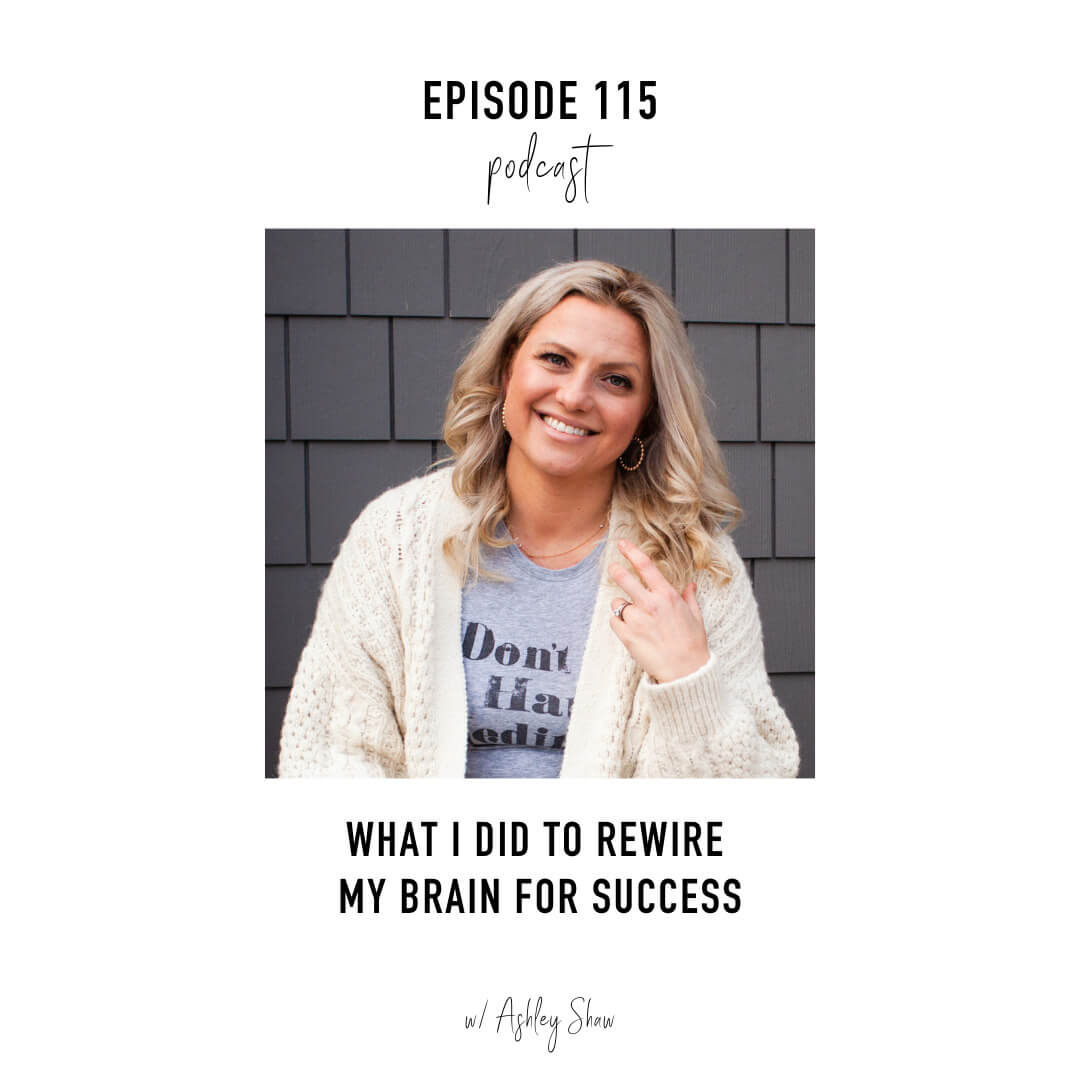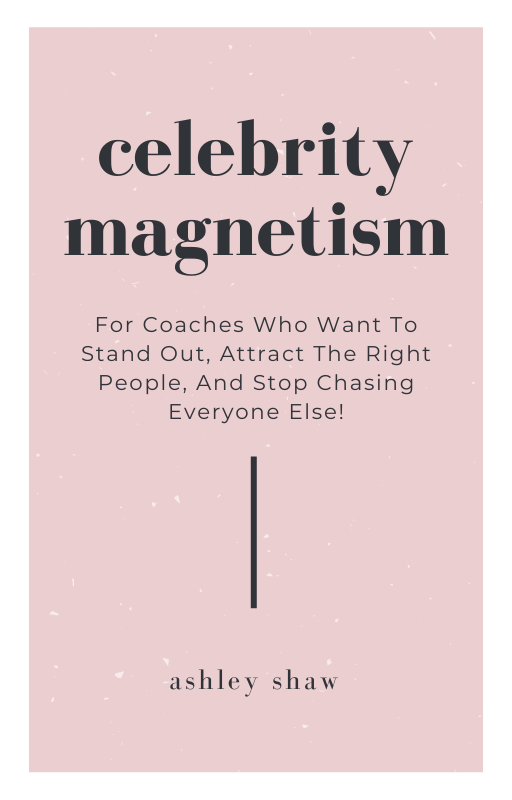

I come from a HEAVY sales and marketing background where it was super high pressure all the time. Recently, I’ve learned something through recent meditations and an AMAZING post from @theholistictherapist on Instagram!
It was about how as children, we download what our parents do, along with their coping mechanisms. If they’re missing something such as emotion regulation, coping skills, etc… we take that on as adults. When we can’t deal with something we haven’t been equipped for, it can manifest as control. If we don’t know how to navigate it in the world, it can present itself as fear. (I honestly think this post’s information changed my life!)
After I read it and considered the things I try to control in my life, I realized I’ve always tried to control food intake and eating in a VERY specific way, beyond what’s healthy. (I’ve ALWAYS been on a diet. It’s one thing to generally eat healthy, but it’s another to ALWAYS be on a diet.) The other is exercise. If I don’t exercise, I feel guilty that I haven’t done it. (This is another form of control.)
As adults, we’re often trying to control things we didn’t know how to deal with as kids. If we weren’t taught how to cope with that thing properly, we try to control it because we can’t trust ourselves to operate it in the real world.
Another realization:
As a child, I’d always felt I had to perform. There were four of us kids, so naturally there was a lot of competition for attention and performance was where I usually got it. I always felt my entrepreneurial spirit and writing ability was something my parents noticed and praised. So when it comes to being competitive and placing my worth in performance, a deep attachment has developed between how my business is doing and how I FEEL. I’d feel great when I’m performing well and hitting my goals… but if that’s NOT happening, or there’s some turbulence, I’d feel like shit. (It’s an unhealthy form of control!)
A mentor told me, “you’re in one seat at the dinner table, and your business is in another.” You have to separate the two. You are not your business.
It’s been a year of learning how to cope with this. When your performance is tied with who you think you are as a person, nothing can turn that around until your performance turns around in some way. I do not want to pass this on to my daughter. I don’t want her to believe she’s only as good as “her last month at work.”
It’s not a great way to live, and for me, it’s not something I’ve fully broken since I left the fitness industry. After reading that Instagram post, it hit me: this is something I want to change.
We’re usually operating in these ways unconsciously. Our bodies are computers with background processes going on that we’re not aware of, which are often childhood-learned beliefs, behaviors, and reactions. They’re programmed deep inside, so it’s important that when we find ourselves trying to control something, we have to stop and ask “Why?” “Why do I feel this compulsion?”
For some of us, it’s gotten easier. (I’ve done a LOT of therapy, so I’m used to thinking back to a time I felt this way and can make those connections.) If you haven’t done it, it can be harder at first but I find journaling and writing “Why do I feel this way” can get thoughts out of your head and onto paper. It’s a different experience. You have to change up your routines if you want to stir different things in your body!
Another example:
I have a deep need to please people and make sure everyone is happy. Essentially, it’s saying “I want to control this person’s opinion of me.” (Not healthy.) You can’t control what others feel and it’ll take you beyond your own boundaries, because you have to do whatever it takes to make that person happy. I definitely think this is something that’s connected to our childhoods.
When it comes to pleasing people, I looked back and remembered my childhood from grade 8 to grade 9. I was happy-go-lucky with lots of friends, then something changed. I was bullied. A close friend commit suicide. These events made me feel out of control, and it was a pinnacle moment that shaped me as an adult. When you’re bullied at any point in your life, you just want to be overly nice to people so you don’t have to deal with the repercussions. I told the school and my parents were aware, but I didn’t feel like I had the skills to know exactly how to deal with it so I could move forward and feel fully resolved. I always felt like I was walking on eggshells.
Here I am as a 36 year old adult, and I’m doing the exact same things! We fall back into those things we pick up as kids. Realizing this was a huge ah-ha moment for me. When you can put your finger on those things, you can figure out WHY you’re doing what you’re doing and ask: What are the skills you need to learn to ensure that doesn’t keep happening?
Now, I can look back and see that I’m not in that place anymore… but how do I cultivate the skills to cope? What if someone DOES fly off the handle? What if someone isn’t happy, and doesn't like me? Am I going to be ok with that?
The truth is, I’ve learned to limit my contact with people that don’t add a positive vibration into my life. There are enough negative things in the world we have to navigate. Our bodies and systems are set up to look for danger, so naturally a negative event has a bigger impact on us than a positive event because our instinct is to stay protected and safe. There are lots of things going on in the background of our operating systems that predisposes us to be negative, so having negative people or people who think only of scarcity in our lives will have an impact.
Reevaluating this situation has made it MUCH easier to let go of pleasing everyone because it’s just not possible. Of course I want to be fair and integral, but I’m not going to not say something because I’m worried that person won’t like me anymore.
What do you think? Have you had a similar experience? Does looking at what you’re trying to control ring any bells for you?
In summary:
Constantly dealing with these situations causes anxiety, because your body goes back into fight or flight mode. It can be difficult to stay OUT of that mode if you’re always having fear and control-based issues coming up. I’ve been chatting with a friend that’s a doctor, and she talked a bit about microdosing.
Microdosing is taking 1/10th of a dose of something, like magic mushrooms. You’re taking a very small amount that’s said to have a certain impact, but not enough to put you into a psychedelic state or trip you out. (I wasn’t always comfortable with this until I spoke with a professional who’d tried it for herself, and had a company she recommended.)
The company is called Sero, and there are a few variations so they offer three different kinds. View Master, Lite Brite, and Connect Four (based on old school game names)! They come in 150mg and 100mg, and there are instructions on how to get the dosage right. I chose View Master and Lite Brite based on what their website said they were for, and made sure I started small. I took View Master first, waited 6 hours, then tried Lite Brite.
(I don’t take it every day. Sometimes every other day, or just 5 days/week with weekends off. The general rule is to take 2 days off/week to avoid building a tolerance.)
How it feels:
Yesterday I had a surge of energy. (It felt a little more “flow-like” than usual after I’d taken the one for flow and energy.) After I took LiteBrite - which supports mood - I definitely feel a gentle flow/glow. There’s no sense of impairment in any way, just a sense of light calm. Normally I feel slightly anxious depending on how I start my day, because sometimes my to-do list can feel SO big that I feel defeated before I even start to get into it. The feeling of overwhelm is very intense. Today, the best way I can describe it is that I feel none of that “intensity.”
**If you’ve ever been interested or curious in what microdosing is all about, hopefully this episode was a peek behind the curtain!**
Key Takeaways From This Episode:
WHERE WE CAN CONNECT:
Don’t forget….. If you loved this episode, screenshot it and share it to your IG stories and tag me @theashleyshaw. I would love to connect with you!
Podcast: Play in new window | Download
Subscribe: Apple Podcasts | Google Podcasts | RSS

